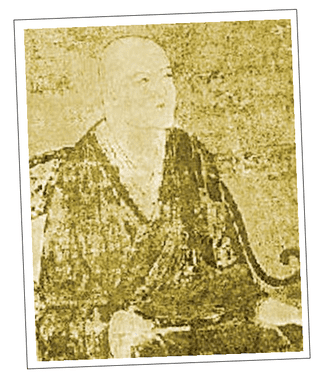The oldest fundraising letter in the world
I've just got back from the International Fundraising Conference in Amsterdam. I'd been invited to speak about direct marketing and seeing as it was their 30th anniversary, I decided to look at what fundraisers were doing back in 1981 for some source material.
As regular readers of this blog know, I have a real interest in the history of fundraising, as I think that our predecessors could teach us a huge amount about creating great appeals.
As part of my research, I was digging around newspaper archives and the further back in time I went, the more excited I became. I found some really great stuff. I'd soon left the eighties behind and was happily digging through mind-blowing fundraising press ads from as far back as the early 1900s.
I started wishing that charities were as good at archiving as newspaper publishers, as I'd have loved to seen the direct mail produced at the time.
Unfortunately, few organisations have archives that go back more than a decade or two. The YMCA has a pretty good one and I've posted a fundraising letter that Newcastle YMCA wrote in the 1880s but I really wanted to find out if there were any earlier examples of fundraising letters in existence.
So the search continued.
And a little later I found a letter that was written shortly before 1880.
645 years earlier!
The letter in question is on SOFII, the online showcase of some of the best examples of fundraising used anywhere in the world, ever. It was submitted by Mal Warwick.
 It was written in 1235 by Eihei Dogen, A Buddhist sage who was looking for funds to build a training monastery. They had already bought the land and needed funds for construction...
It was written in 1235 by Eihei Dogen, A Buddhist sage who was looking for funds to build a training monastery. They had already bought the land and needed funds for construction...
"We urgently need a monk's hall right now. We will set up long platforms to reside on, where we will practice day and night without fail."
But as well as asking for funds, the letter demonstrated that almost eight hundred years ago, they knew that fundraising was about more than just asking for help...
"We will acknowledge gifts by installing the donors' names in the centre of the sacred image. The myriad syllables of the seed wisdom will honour the donors and everyone."
Not bad for 1235. And it makes me think that rather than expending so much effort on innovation, perhaps a few hours spent studying tried and tested ideas on SOFII could be a much better use of your time.
You can read the letter and find out more about the appeal by visiting SOFII here.
And If you'd like to see the rest of the materials I found, I'll be posting my presentation on line as soon as I get the time to record a voiceover.
Tags In
Related Posts
3 Comments
Comments are closed.
The Essentials

Crack the Code to Regular Giving: Insights, Strategies, and a Special Giveaway!

‘Tis Halloween. Keep to the light and beware the Four Fundraisers of the Apocalypse!

Why do people give? The Donor Participation Project with Louis Diez.

A guide to fundraising on the back of a postcard

What does the latest research tell us about the state of fundraising?






Mark, for a long time Dogen’s fundraising letter was the oldest one on SOFII, but there’s a fairly famous one from about 1200 years earlier. In the Bible St Paul includes a fundraising appeal in his second letter to the church members in Corinth (Greece), written sometime in the 50s AD. I’ve written it up for SOFII at http://www.sofii.org/showcase-item?hall=275&id=14&pos=19
There’s also a couple more Bible fundraising examples from before then – over a thousand years older – so more than 3000 years ago – but major donor events rather than letters. They are also in the SOFII archives. Moses is at http://www.sofii.org/node/498 and David at http://www.sofii.org/node/527
But did the monks split test a data driven ask string with the recognition offer.
Hi Ian
Yep. You are obviously right. St. Paul’s letter in the bible is obviously the oldest record of fundraising being mentioned in a letter. From what I understand though, Dogen’s letter is the first letter that has fundraising as it’s key goal.
And I love the other examples you mention, particularly Moses call for volunteers.
Thanks for pointing them out and providing links.
Mark